Puppy Vaccinations Vs Socialisation
Puppy Vaccination Socialisation and Classes
This article explains the reality of the threat of the diseases covered in these vaccines and why Vets and Insurance companies don’t understand the vital components needed to create a happy and contented dog. They are ignorant of the importance of the first critical weeks. This article will tell you the truth.
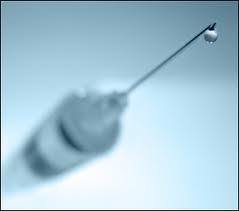
Vaccinations and Socialisation: Are you aware that your new puppy can meet any other dogs, cats and people before your puppy vaccinations have even started?
Many breeders have more than one dog and in some cases, they can have six or more dogs in the same house. When I bred my litter of puppies I had six adult dogs.
I did not separate them why should I? Yes, in the first week or so to allow the mother to settle in with the puppies and set up a regime then after that they were often together.
All my dogs had been vaccinated as puppies so no problems whatsoever. I also had a puppy party and in total had well over 200 people handle the puppies before they were 7 weeks.
Where do most people take their puppies to be vaccinated? It is the very place where seriously ill dogs go. The Vets. If they were going to get one of these rare diseases it would probably be there.
So I arranged for my Vet to come to me to do the pup’s vaccinations. As long as all the dogs your puppy meets have been vaccinated then there are no health or welfare concerns.
Then why is it that the Vets do not appear to understand and recommend this action? I think we tend to forget that Vets are surgeons, not behaviourists.
In a five-year degree course, the subject of socialisation and critical periods in a puppy and adult dog’s lifecycle is covered, learned or discussed. What a tragedy, as the impact of ignoring these critical requirements in a puppy’s life is disastrous to the future behaviour of any dog. They often ignore the psychological needs of any of the animals they treat
There is a vaccination that allows your dog to be fully covered at about 10.5 weeks. This is called generally Nobivac D.H.P.Pi/L. The L at the end stands for Leptospirosis. You should read the many articles on the very real dangers of this vaccination and especially L4.
Recommendations: With regard to vaccinations, It will depend on your Vet when he or she recommends you can take out your puppy after its final inoculations. Every vaccine manufacturer says 1 week after 2nd vaccination and that is really belt and braces cover.
So why do vets say different times? Some say two weeks, others one week and some state 48 hours, especially if they have been behaviourally trained. So why is there a difference in the advice? Surely they should all say the same time frame?
I believe it is because it is their insurance companies that dictate what they tell you. They also tell you that if the puppy gets sick any insurance you have will be invalidated. Once again that is not true, if your dog gets any of the diseases that are covered in the vaccine then that could invalidate not the insurance but only the part that covers the disease given in the vaccination.
The other thing I cannot understand is how would they possibly know. There are no guarantees that any vaccination will work and create antibodies, the puppies could have the disease before the vaccination. Just scare tactics as usual.
There as some well-informed vets that say to mix them with other vaccinated dogs and lots of people from the day you get them. Because those pets and dogs have got the antibodies from their own vaccinations and humans do not suffer from these diseases and therefore cannot pass them on to your pup.
The Second Vaccination: The 2nd set of vaccinations is exactly the same as the first set, it just to make sure that the first one worked which it probably does in nearly every case. So why have the second set of vaccinations?
Many years ago we did not wean our puppies until they were 8 to 9 weeks old, which meant that the first vaccination could be affected or disrupted by the maternal antibodies and colostrum in the mother’s milk. We now start meaning at 3.5 weeks and most puppies are fully weaned by 6.5 to 7 weeks.
If the first vaccination is given at 8 to 8.5 weeks then in most cases that vaccine will provide full immunity. I still recommend having the second set done as a belt and braces cover all.
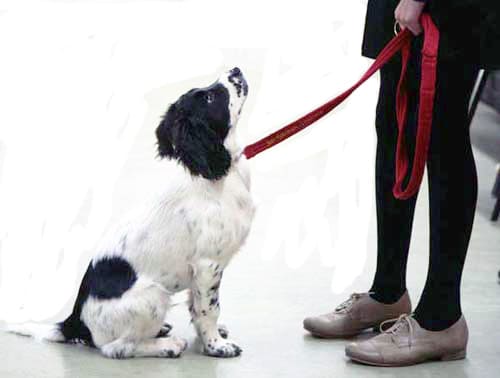
I have run puppy classes for well over 20 years and the puppies come to them aged 8 weeks onwards. We have never ever had a single puppy that contracted any of the diseases covered by puppy vaccinations.
That means not one of well over 20,000 puppies meeting other puppies and dogs were not afflicted by any one of the core diseases they were vaccinated against. Yet we are told our puppies are in mortal danger of these diseases.
Given that I have treated over 45,000 one-to-one clients and over 20,000 puppies over the many years of working with dogs.
Many if not most of those problems were caused by the lack of socialisation during the first 16 weeks of that puppy’s life, then I think the veterinary profession should start understanding the harm they are causing by their scare tactics.
I am not saying that we should not be aware of these horrible diseases, we should, but common sense must prevail. The biggest killer of young dogs is euthanisation, most of them are either put down or rehomed because of psychological and training problems. These problems are caused mainly by the lack of socialisation in the first 16 weeks of those poor puppies’ lives.
The fear of your pup contracting one of these extremely rare diseases has killed and ruined the lives of more dogs than the diseases ever could save. Those fears are promulgated by the scare stories of rampaging disease running through the dog population, which is patently untrue I think part of a Vets degree course should include (1) Critical Periods in a Puppies Growth
In the end, you should take due consideration of the potential risks of any outbreaks of canine diseases in your area. All these diseases are extremely rare. I would like you to consider this. If you had a child would you shun all socialisation and human contact with that child until it has been vaccinated for TB Smallpox and the MMR jab?
What would be the repercussions if you did? You would have a child with serious emotional impairments and the possibility of being unable to communicate or converse with people. They would be fearful of strangers and unknown situations. That is exactly what you are doing to your puppies!
My personal opinion is early socialisation is so vital, as to almost override any other consideration. Within reason, if there are any cases in your area of say parvovirus then that has to be taken into consideration. Though in my lifetime I have never experienced an outbreak of any of the diseases covered by the pups set of vaccines. I always take my puppies out after the first jab, I just do not let them go over to the park until the second set of vaccinations and 48 hours after that. I have owned nearly 60 dogs over the years not one has ever died of any of the diseases covered by the vaccinations.
This article (2) Vaccine Dangers explains how many of our vets are ignoring vaccine protocols issued by the vaccine manufacturers and the BVA (British Veterinary Association) and the WSAVA (World Small Animal Veterinary Association)
It is vital that you read this as it affects the health and well-being of all our dogs. It also explains the reason I stated: “As long as the dog has been vaccinated in the last three/four years.” Are you aware that the DOIs ( Duration of Immunity) changed in 2010? Has your vet told you that?
Are you also aware that in reality, all science points to the fact that the immunity of the core vaccines D.H.P.Pi lasts for life? We do not have TB Smallpox and MMR jabs every year or every 3 years because they create lifelong immunity. This is exactly the same in dogs. and overvaccination for profit is causing immune-compromised disease in dogs Read my Article (3) Why Are Dogs Dying Early It will shock you
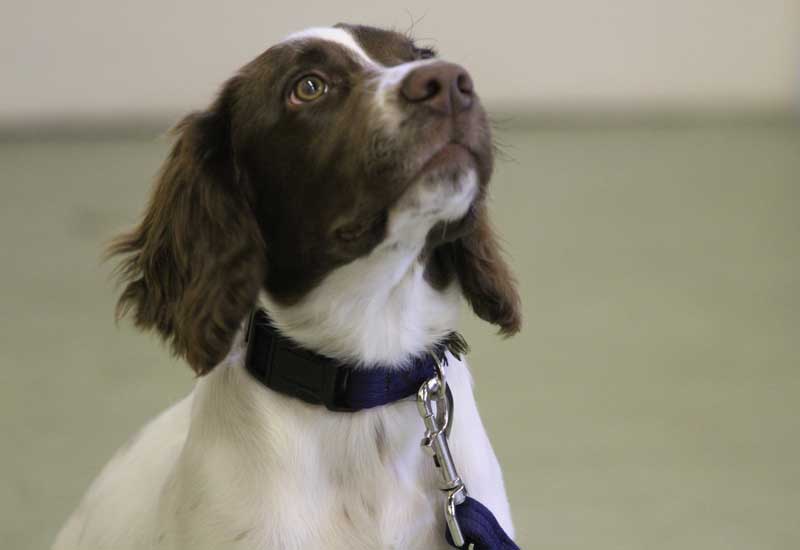
Training: Make training fun and enjoyable, don’t make it so hard or boring that your dog yawns through the whole lesson
Begin to teach your puppy to understand sit, come, and down from the day you get her/him.
Training in the 1st 16 weeks of a pup’s life lasts a lifetime. That is why things like recall training and the introduction of my things to the puppy that is vital during that period. Read (4) Puppy Recall and Whistle Training
If you type Puppy Recall and Whistle Training into Google my article will come first, as will many others such as Walking to Heel. Different Types of Aggression or Fearful and Timid Dogs.
In fact of all the articles, I have written nearly fifty of them to come up first. None are paid for all are natural listings and get there because of the number of people that read them. That is how Google gauges the success of an article.
Toys and Treats: I also use toys, treats and specialised chews for playtime and training, and as a special treat when they do something right. Verbal praise is also very important.
Make sure you are controlling the training and the game by taking these items away from them and then giving them back or throwing them for the pup to retrieve. At the end of the game, make sure that you finish by taking the toy away, and replacing it with a treat to show he has not lost anything.
By these actions, you have helped train the dog not to resource guard. That is a problem I have to deal with on a very regular basis. Most guarding behaviour starts from these all-important critical periods. Gently exchanging treats or verbal praise for things the pup may have can help. Not only to avoid food guarding and possession aggression problems but to discourage all bad habits from day one.
If your puppy jumps up then discourage him by saying “OFF” using body language and a turn of the head away. Most dogs learn to control their bite when nipping their litter-mates whilst playing. This is commonly called bite inhibition. If they bite another puppy too hard, the pup will cry out and turn its head away. The puppy that had bitten hard then learns that it is the end of the play. he learns to control the power of the bite with friends and family so interaction can continue. (5) Bite Inhibition
A device I designed and developed called the Jingler can be invaluable for creating mutual respect between owner and dog. It will help stop jumping up and biting and will teach the puppy to walk to heel as it gets a little older See (6) My Products and the Jingler My range of treats are here (7) Air Dried Natural Dog Treats and (8) Fish4Dogs Dental Training and Joint Treats.
Biting and Nipping: Most puppies when they arrive in our homes for the first time, treat us and our families as playmates, and may nip bite and lunge at us. By copying the litter-mates behaviour, and crying out plus body language helps to discourage this natural behaviour. No matter how gently your puppy bites you must react as if it has taken a chunk out of you until the biting is almost like a butterfly landing on your hand.
This discourages biting and mouthing in later life. Make sure that your children and any others that visit do not treat the puppy as a plaything or toy. Teach the children and any other visitors that they must abide by your rules regarding your new pet. see my article on (4) Bite Inhibition
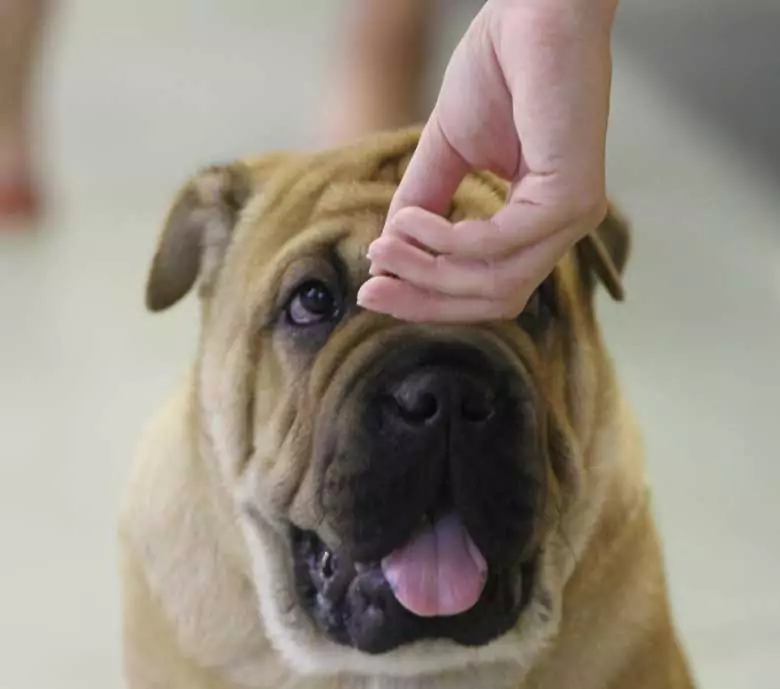
Socialisation and Training Classes: This whole article is about the necessity to socialise your dog at an early age.
I allow pups in my classes from the age of eight weeks of age, as long as they have their 1st vaccination.
If you wait too long you will have missed the opportunity of allowing your dogs to be able to meet and greet other dogs, children and strangers.
Pups learn these all-important lessons up to about 16 weeks of age. Body language plays an important role in this process.
This lesson once learned is rarely forgotten. Most importantly pups learn the meeting and greeting techniques from other puppies of a similar age. not as many people believe in adult dogs.
I encourage children to attend and play pass the puppy where everybody gets the chance to handle all the other puppies in a positive and kind way.
The majority of the dogs I have to treat for behavioural difficulties have rarely been to a GOOD puppy class. Therefore Puppy classes are an absolute must.
it is not a case of should I take my dog, but where are the best classes and how early can I get my dog to attend. The earlier you can get to classes the better, as the pup will benefit more in the early weeks of its life.
My classes are run on a six-week basis. NEVER a roll on roll off system which is to my mind counterproductive. Be careful of any Puppy Behaviourist or Trainer who does not run Puppy Classes. This means they do not understand the importance of these dogs meeting other puppies and strangers in a controlled environment.
See details of my classes and what to look for in a Puppy Class. if you are not able to attend my own (9) Puppy Classes.
I would like to point out that though I appear to be having a go at the vets some of my best friends are Veterinary Surgeons some can walk on water and many are genuinely in the profession to help their clients both human and animal. But unfortunately not all. Since1999 the Veterinary Profession has changed enormously and I believe for the worse. I wrote this article recently and it went viral it is worth a read. (10) Is The Veterinary Profession Broken
if you found this article interesting please sign up for my Newsletters and get all my latest articles, information and comments.
Newsletter Sign Up
| Is your dog pulling on the Lead, Unruly, Bad Recall, Aggressive, Jumping Up Nipping and Biting? See my article and Video Clips on how to stop this. The Jingler |
(1) Critical Periods in a Puppies Growth
(2) Vaccine Dangers
(4) My Products and the Jingler
(5) Bite Inhibition
(6) Training Aids Including Recall
(7) Air Dried Natural Dog Treats
(8) Fish4Dogs Dental Training and Joint Treats
(9) Puppy Classes
(10) Is The Veterinary Profession Broken
Stan Rawlinson 2013 Updated 2023
One of the greatest problems that new puppy owners have to come to terms with is how to socialise their puppy during the period before the complete set of vaccinations are in place. Most behavioural problems are created in the 1st 16 weeks of dog’s life. This article explains the reality of the threat of the diseases covered in these vaccines and why Vets and Insurance companies do not understand or comprehend the vital components needed to create a happy and contented dog. They are in the main ignorant of the importance of those first critical weeks. This article will tell you the truth.

Vaccinations and Socialisation: Are you aware that your new puppy can meet any other dogs, cats and people before your puppy vaccinations have even started?
Many breeders have more than one dog and in some cases, they can have six or more dogs in the same house. When I bred my litter of puppies I had six adult dogs.
I did not separate them why should I? Yes, in the first week or so to allow the mother to settle in with the puppies and set up a regime then after that they were often together.
All my dogs had been vaccinated as puppies so no problems whatsoever. I also had a puppy party and in total had well over 200 people handle the puppies before they were 7 weeks.
Where do most people take their puppies to be vaccinated? It is the very place where seriously ill dogs go. The Vets. If they were going to get one of these rare diseases it would probably be there.
So I arranged for my Vet to come to me to do the pup’s vaccinations. As long as all the dogs your puppy meets have been vaccinated then there are no health or welfare concerns.
Then why is it that the Vets not do not appear to understand and recommend this action? I think we tend to forget that Vets are surgeons, not behaviourists.
In a five-year degree course, the subject of socialisation and critical periods in a puppy and adult dogs lifecycle is covered, learned or discussed. What a tragedy, as the impact of ignoring these critical requirements in a puppies life is disastrous to the future behaviour of any dog. They are often ignorant of the psychological needs of any of the animals they are treating.
There is a vaccination that allows your dog to be fully covered at about 10.5 weeks. This is called generally Nobivac D.H.P.Pi/L. The L at the end stands for Leptospirosis. You should read the many articles on the very real dangers of this vaccination and especially L4.
Recommendations: With regard to vaccinations, It will depend on your Vet when he or she recommends you can take out your puppy after its final inoculations. Every vaccine manufacturer says 1 week after 2nd vaccination and that is really belt and braces cover.
So why do vets say different times? Some say two weeks, others one week and some state 48 hours, especially if they have been behaviourally trained. So why is there a difference in the advice? Surely they should all say the same time frame?
I believe it is because it is their insurance companies that dictate what they tell you. They also tell you that if the puppy gets sick any insurance you have will be invalidated. Once again that is not true, if your dog gets any of the diseases that are covered in the vaccine then that could invalidate not the insurance but only the part that covers the disease given in the vaccination.
The other thing I cannot understand is how would they possibly know? There are no guarantees that any vaccination will work and create antibodies, the puppies could have the disease before the vaccination? Just scare tactics as usual.
There as some well-informed vets that say mix them with other vaccinated dogs and lots of people from the day you get them. Because those pets and dogs have got the antibodies from there own vaccinations and humans do not suffer from these diseases and therefore cannot pass on to your pup.
The Second Vaccination: The 2nd set of vaccinations is exactly the same as the first set, it just to make sure that the first one worked which it probably does in nearly every case. So why have the second set of vaccinations?
Many years ago we did not wean our puppies until they were 8 to 9 weeks old, that meant that the first vaccination could be affected or disrupted by the (M A) Maternal Antibodies and Colostrum in the mother’s milk. We now start Weaning at 3.5 weeks and most puppies are fully weaned by 6.5 to 7 weeks.
If the first vaccination is given at 8 to 8.5 weeks then in most cases that vaccine will provide full immunity. I still recommend having the second set done as a belt and braces cover all.

I have run puppy classes for well over 20 years and the puppies come to them aged 8 weeks onwards. We have never ever had a single puppy that contracted any of the diseases covered by the puppy vaccinations.
That means not one of well over 20,000 puppies meeting other puppies and dogs were not afflicted by any one of the core diseases they were vaccinated against.
And we are told our puppies are in mortal danger by these diseases.
The main problem is that vets are not behaviourists and are often ignorant of the psychological and critical needs of the animals they are treating.
Given that I have treated over 45,000 one to one clients and over 20,000 puppies over the many years of working with dogs.
Many if not most of those problems were caused by the lack of socialisation during the first 16 weeks of that puppies life, then I think the veterinary profession should start understanding the harm they are causing by their scare tactics.
I am not saying that we should not be aware of these horrible diseases, we should, but common sense must prevail. The biggest killer of young dogs is euthanisation, most of them are either put down or rehomed because of psychological and training problems. These problems are caused in the main by the lack of socialisation in the first 16 weeks of those poor puppies lives.
The fear of your pup contracting one of these extremely rare diseases has killed and ruined the lives of more dogs than the diseases ever could save. Those fears are promulgated by the scare stories of rampaging disease running through the dog population, which is patently untrue I think part of a Vets degree course should include (1) Critical Periods in a Puppies Growth
In the end, you should take due consideration of the potential risks of any outbreaks of canine diseases in your area. All these diseases are extremely rare. I would like you to consider this. If you had a child would you shun all socialisation and human contact with that child until it has been vaccinated for TB Smallpox and the MMR jab?
What would be the repercussions if you did? You would have a child with serious emotional impairments and the possibility of being unable to communicate or converse with people. They would be fearful of strangers and unknown situations. That is exactly what you are doing to your puppies!
My personal opinion is early socialisation is so vital, as to almost override any other consideration. Within reason, if there are any cases in your area of say parvovirus then that has to be taken into consideration. Though in my lifetime I have never experienced an outbreak of any of the diseases covered by the pups set of vaccines. I always take my puppies out after the first jab, I just do not let them go over to the park until the second set of vaccinations and 48 hours after that. I have owned nearly 60 dogs over the years not one has ever died of any of the diseases covered by the vaccinations.
This article (2) Vaccine Dangers explains how many of our vets are ignoring vaccine protocols issued by the vaccine manufacturers and the BVA (British Veterinary Association) and the WSAVA (World Small Animal Veterinary Association)
It is vital that you read this as it affects the health and well-being of all our dogs. It also explains the reason I stated: “As long as the dog has been vaccinated in the last three/four years.” Are you aware that the DOIs ( Duration of Immunity) changed in 2010? Has your vet told you that?
Are you also aware that in reality, all science points to the fact that the immunity of the core vaccines D.H.P.Pi lasts for life? We do not have TB Smallpox and MMR jabs every year or every 3 years because they create lifelong immunity. This is exactly the same in dogs. and overvaccination for profit is causing immune-compromised disease in dogs Read my Article (3) Why Are Dogs Dying Early It will shock you

Training: Make training fun and enjoyable, don’t make it so hard or boring that your dog yawns through the whole lesson
Begin to teach your puppy to understand sit, come, and down from the day you get her/him.
Training in the 1st 16 weeks of a pups life lasts a lifetime. that is why things like recall training and the introduction of my things to the puppy that is vital during that period. Read (4) Puppy Recall and Whistle Training
If you type into Google Puppy Recall and Whistle Training into Google my article will come first, as will many others such as Walking to Heel. Different Types of Aggression or Fearful and Timid Dogs.
In fact of all the articles, I have written nearly fifty of them to come up first. None are paid for all are natural listing and get there because of the amount of people that read them. That is how Google gauges the success of an article.
Toys and Treats: I also use toys, treats and specialised chews for playtime and training, and as a special treat when they do something right. Verbal praise is also very important.
Make sure you are controlling the training and the game by taking these items away from them then giving them back or throwing them for the pup to retrieve. At the end of the game, make sure that you finish by taking the toy away, replacing it with a treat to show he has not lost anything.
By these actions, you have helped train the dog not to resource guard. That is a problem I have to deal with on a very regular basis. Most guarding behaviour starts from these all-important critical periods. By gently exchanging treats or verbal praise for things the pup may have can help. Not only to avoid food guarding and possession aggression problems but to discourage all bad habits from day one.
If your puppy jumps up then discourage him by saying “OFF” using body language and a turn of the head away. Most dogs learn to control their bite when nipping their litter-mates whilst playing. This is commonly called bite inhibition. If they bite another puppy too hard, the pup will cry out and turn their head away. The puppy that had bitten hard then learns that it is the end of the play. he learns to control the power of the bite with friends and family so interaction can continue. (5) Bite Inhibition
A device I designed and developed called the Jingler can be invaluable for creating mutual respect between owner and dog. It will help stop jumping up and biting and will teach the puppy to walk to heel as it gets a little older See (6) My Products and the Jingler My range of treats are here (7) Air Dried Natural Dog Treats and (8) Fish4Dogs Dental Training and Joint Treats.
Biting and Nipping: Most puppies when they arrive in our homes for the first time, treat us and our families as playmates, and may nip bite and lunge at us. By copying the litter-mates behaviour, and crying out plus body language helps to discourage this natural behaviour. No matter how gently your puppy bites you must react as if it has taken a chunk out of you until the biting is almost like a butterfly landing on your hand.
This discourages biting and mouthing in later life. Make sure that your children and any others that visit do not treat the puppy as a plaything or toy. Teach the children and any other visitor that they must abide by your rules regarding your new pet. see my article on (4) Bite Inhibition

Socialisation and Training Classes: This whole article is about the necessity to socialise your dog at an early age.
I allow pups in my classes from the age of eight weeks of age, as long as they have their 1st vaccination.
If you wait too long you will have missed the opportunity of allowing your dogs to be able to meet and greet other dogs, children and strangers.
Pups learn this all-important lessons up to about 16 weeks of age. Body language plays an important role in this process.
This lesson once learned is rarely forgotten. Most importantly pups learn the meeting and greeting techniques from other puppies of a similar age. not as many people believe from adult dogs.
I encourage children to attend and play pass the puppy where everybody gets the chance to handle all the other puppies in a positive and kind way.
The majority of the dogs I have to treat for behavioural difficulties have rarely been to a GOOD puppy class. Therefore Puppy classes are an absolute must.
it is not a case of should I take my dog, but where are the best classes and how early can I get my dog to attend. The earlier you can get to classes the better, as the pup will benefit more in the early weeks of its life.
My classes are run on a six-week basis. NEVER a roll on roll off system which is to my mind counterproductive. Be careful of any Puppy Behaviourist or Trainer who does not run Puppy Classes. This means they do not understand the importance of these dogs meeting other puppies and strangers in a controlled environment.
See details of my classes and what to look for in a Puppy Class. if you are not able to attend my own (9) Puppy Classes.
I would like to point out that though I appear to be having a go at the vets some of my best friends are Veterinary Surgeons some can walk on water and many are genuinely in the profession to help their clients both human and animal. But unfortunately not all. Since1999 the Veterinary Profession has changed enormously and I believe for the worse. I wrote this article recently and it went viral it is worth a read. (10) Is The Veterinary Profession Broken
if you found this article interesting please sign up for my Newsletters and get all my latest articles, information and comments.
Newsletter Sign Up
| Is your dog pulling on the Lead, Unruly, Bad Recall, Aggressive, Jumping Up Nipping and Biting? See my article and Video Clips on how to stop this. The Jingler |
(1) Critical Periods in a Puppies Growth
(2) Vaccine Dangers
(4) My Products and the Jingler
(5) Bite Inhibition
(6) My Products and the Jingler
(7) Air Dried Natural Dog Treats
(8) Fish4Dogs Dental Training and Joint Treats
(9) Puppy Classes
(10) Is The Veterinary Profession Broken
Stan Rawlinson 2013 Updated 2020





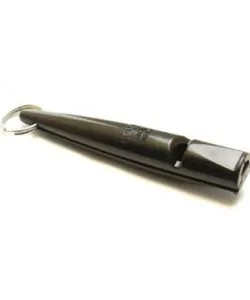
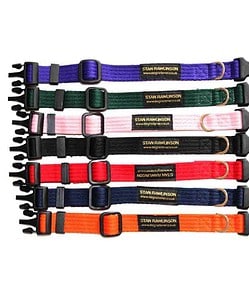


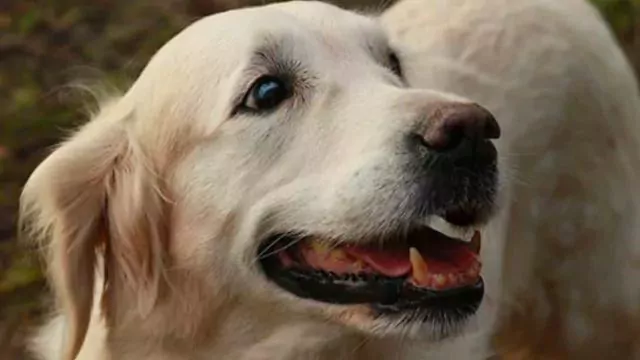

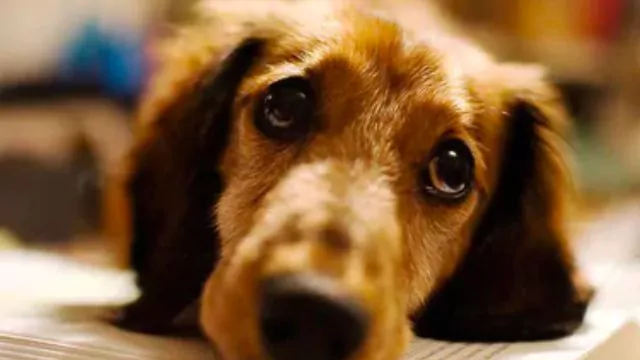

Comments (5)
Lepto 4 vaccination
Can you please advise. My Pointer puppy was vaccinaTed at 8 weeks and microchipped by the breeder’so vet with Canigen DHPPI and Canigen L4. I was advised to reactivated at 12 weeks, however I am unhappy to reuse the L4. Would you advise continuing or abandoning the L4 and restart the L2 vaccine?
Lepto 4 vaccine
The ineffectiveness of the vaccine is due in part to the many leptospirosis serovars and variability of pathogenic strains which are not addressed with vaccines.
May I recommend coming back in a week and i will have written an article on the very real dangers of Lepto 4 for all ages of dogs. Read this in the meantime. http://www.dogsnaturallymagazine.com/report-lepto-vaccine-uk-dogs-dying/
Toilet training between vaccinations
Please, could you advise me? We will be getting a puppy in August and he will be around 10 weeks old. He will have had his first vaccination.
Unfortunately, his mother passed away under anaesthetic during an emergency Caesarean section, our puppy was born first and born naturally. There were 6 pups all together. The pups fed from a surrogate mother for a week and were then hand-reared.
We are worried to let him onto our garden for toilet training even after he had his 1st vaccination at 8 weeks because we have foxes that visit our garden frequently and we have very rarely seen single rats (There are no nests in the garden) and they seem to be using the garden as a run-through as I said very rarely.
We are worried because he might be less immune to picking up diseases than a puppy who would’ve fed from their mother for the usual amount of time if she had survived. However, we want to start training him to go into the garden for toilet training as soon as we get him home.
Apparently, at the vets in our area, they don’t give the second vaccination until 12 weeks old, although there is one that can be given at 10 weeks old if we prefer but it won’t cover him for all of the others he will get at 12 weeks old.
He is going out into the breeders garden and seems to be fine, but because we know we have foxes and the occasional rat it’s made us apprehensive. We don’t want to do the wrong thing. I would be so grateful for the advice .
Toilet training between vaccinations
This is from my article ” The second vaccination is not a booster it is exactly the same as the first vaccination, it just to make sure that the first one worked which it probably does in 99% of cases”
“In the end, you should take due consideration of the potential risks and any outbreaks of canine diseases in your area. Perhaps speak to a number of vets locally and then make your decision on the information you are given.”
“My personal opinion is early socialisation is so vital, as to almost override any other consideration. Within reason of course if there an outbreak in your area of say parvovirus then that has to be taken into consideration. I always take my puppies out after the first jab I just do not let them go over to the park”
If you are really worried, get a playpen and put it in an area in the garden you want the dog to toilet. However, I would not personally bother about this just have a fox poo inspection before letting the puppy out.
Puppy in lockdown, no classes
I have a 16 week lab and and a 3 year old.
With no classes for the pup i am finding it a challenge to walk 2 dogs with different training needs.
I do go out separately, but in course of the day i can’t always fit in 2 walks.
Comments are closed.